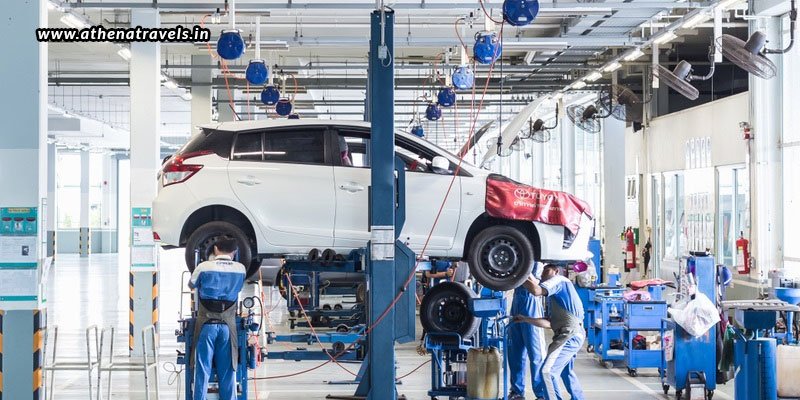
30 Sep How COVID Has Changed Car Servicing in India
The advent of the coronavirus pandemic has changed the way we think, feel, and act in our daily lives. It has changed the way we behave; it has changed the way we approach life and it surely has changed the definitions of what ‘normal’ entails for our lives going ahead. The impact of the pandemic has been so huge that returning to how life once was, seems like a distant reality. However, slowly but surely, the world is restoring.
As India and the Indian economy struggles to recuperate in this debilitating scenario, the industries have begun to evolve in a manner embracing the “new normal”. This holds especially true for the Indian automotive industry with almost all carmakers and showrooms taking their businesses online.

Car servicing, in particular, has seen a mammoth change in the ways its been carried out as the aftermath of the pandemic. Ever since the lockdown was put into effect, all showrooms and service centers had been inaccessible to the general public. With all vehicles no longer in continuous use, it resulted in issues. However, with the help of online platforms, companies have been able to address the issues faced by the customers. This ingenious method has been specifically aimed towards those fighting the pandemic on the frontline, like essential service providers. Tata Motors has filed for special permissions in several cities where they prioritize help and maintenance services for those professionals working all round the clock to fight the pandemic.
If not able to help the customers due to social distancing, many have opted to use social media platforms as a way to educate the general public of some maintenance and servicing tips. Maruti Suzuki took to online platforms to post tips on how to keep the vehicles healthy and avoid common problems like battery discharge and breakdowns.

Car servicing has evolved from an occasional occurrence to something that is desperately needed, if not an indispensable requirement. Since the public is expected to forego public transport and turn to private vehicles, car servicing will consequentially see a spike. The coronavirus pandemic has brought about a significant change in the perspective regarding transportation usage in the minds of consumers. Due to the impact of COVID-19 and the implication of strict physical distancing norms, we anticipate that there will be a considerable decrease in the use of public transport and shared mobility. The demand for personal mobility will increase due to the customer’s need to ensure personal safety. Therefore, vehicles visiting workshops will increase in the near future. In all likelihood, major digital intervention in the service sector will become prevalent across the industry. The customer may request for all service coordination to take place online. And, as the usage of public transport is seen to decline, companies are now offering their staff safety by booking special staff transport services so that the employees can not only quickly and conveniently, but also safely, arrive at the office premises, and then back home. And, Athena Travels is the first name that comes to mind when one thinks about business transportations services in Bangalore, as there is complete safety and maintenance offered in every hatchback, sedan, MUV, minibus, or bus driven by thoroughly inspected chauffeurs here.

Change is inevitable, and in the current climate, absolutely essential. Thus, contactless and online interactions are all the rage, whether it is in car-buying patterns or car servicing patterns noticed in the public. Physical interaction seems to be a thing of the past and may as well be limited to the bare minimum, if not entirely eliminated in the coming times.

